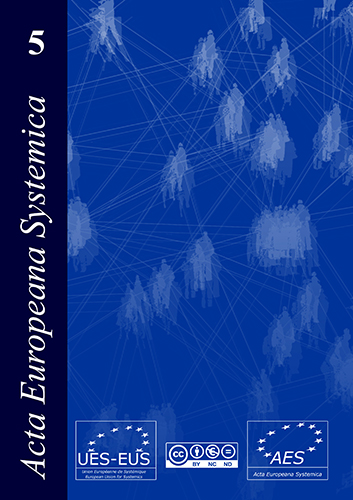From social movements to the coproduction of the city: the renewal of the Right to the City in the contemporary making of public spaces. The case of Madrid and Brussels
DOI:
https://doi.org/10.14428/aes.v5i1.57013Keywords:
participatory planning, empowerment, Right to the City, coproduction, public spacesAbstract
The article is based on the observation of Madrid and Brussels, where we can find recent similar claims for including each of their citizens in the city-making processes. Although Madrid has no experience in participatory planning, and Brussels is considered as one of Europe’s pioneers in this matter, with more than twenty years of experience, both cities encounter analogous citizen demands and self-organized actions for creating spaces that follow an ideal model that is more in line with some citizens’ requests.
These demands range from asking for more possibilities in which citizens express their opinion and ideas about their environment (a new governance), to the requests for disposing of underused spaces for creating socializing places to gather (a new production of the city). Though, these urban social movements as Castells defines (Castells 1973) are not limited to mere demands, but also and nowadays systematically, they tend to pass to action and to hand the leading to empowered citizens.
Thanks to crowdfunding, some projects don’t even wait until obtaining a public funding: once the building permit is given (for a permanent or temporary project), the budget for the realization comes from anybody who wills to be a sponsor. The online crowdfunding method can be applied also to crowd-thinking, crowd-creating and crowd-debating about the relevance of the project. Indeed, thanks to online networks and to mobile applications, citizens can not only express their discontent with the poor condition of a street or street furniture, but they can also make proposals and connect to other people to bring a collective solution to the matter.
This vast range of means of production of the city in which its citizens struggle to achieve their ideal of a more inclusive city-making process, supposes that the degree of citizen empowerment is also broad. Notwithstanding the fact that the means used by Madrid and Brussels’ citizens to be included in the city-making are so diverse, many of these means claim to embrace a common Henri Lefebvre’s Right to the City.
The article retraces the citizen-led and citizen-organized production of public spaces in Madrid and Brussels, intended as places to gather but also as places of discussion about the city-making, during the periods before and after the global crisis of 2008. The idea is to find the ways in which not only the governance is reconsidered to include citizens, but also the urban practices are questioned about their inclination to confine citizen participation only to the preliminary inquiries to a concrete project. Through the exploration of several cases of city-making which include citizens of Madrid and Brussels in the processes, the article questions which kind of Right to the city do they constitute: which are the city models defended by these practices (whose rights to what city? Brenner et al. 2012)? Are they a revision of Lefebvre’s theories in a (global crisis) context? Or are they a reinterpretation of Lefebvre’s Urban Revolution (Harvey 2013) responding to the contemporary withdrawal of the national state of many areas of the social life?
Downloads
Published
How to Cite
Issue
Section
License




